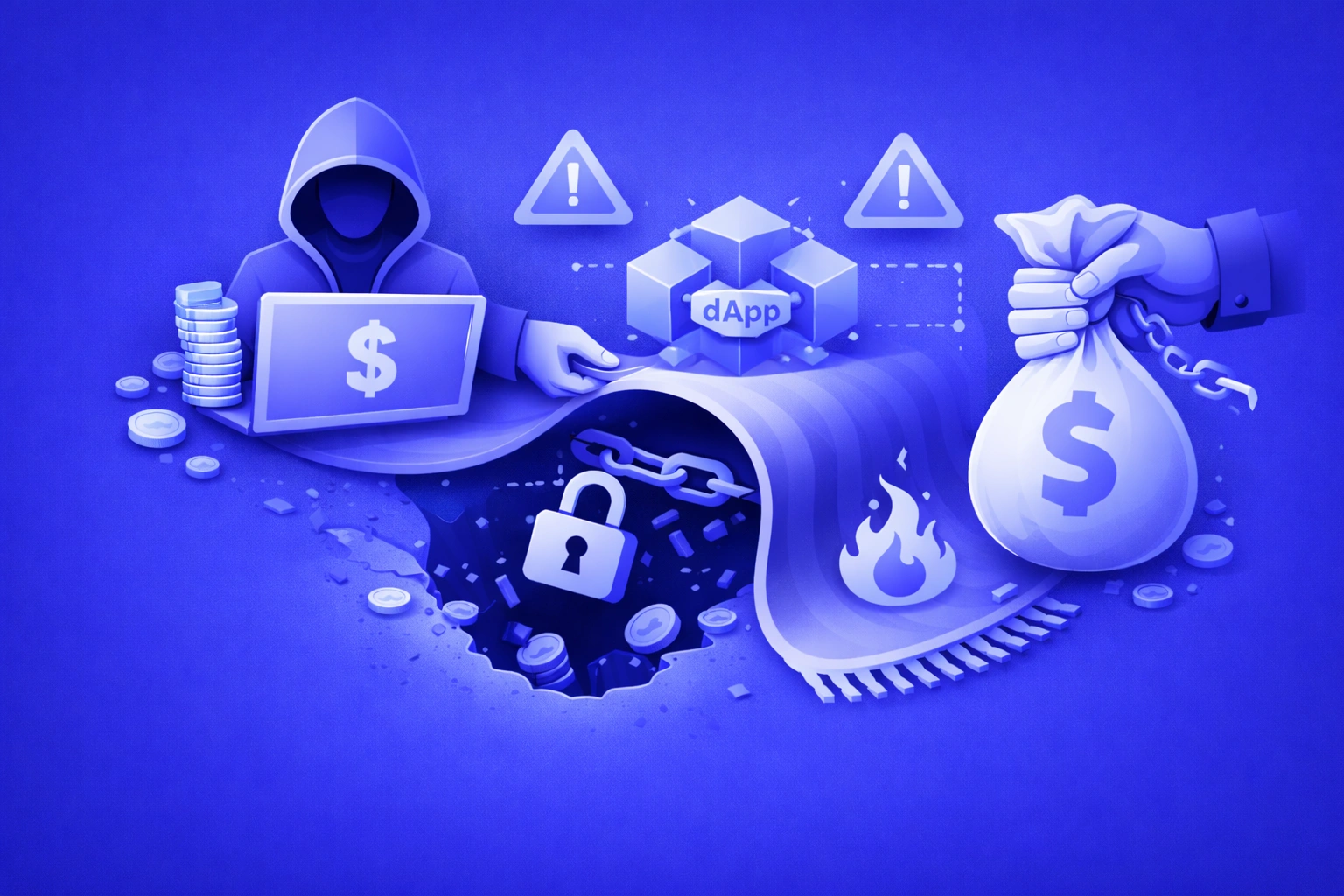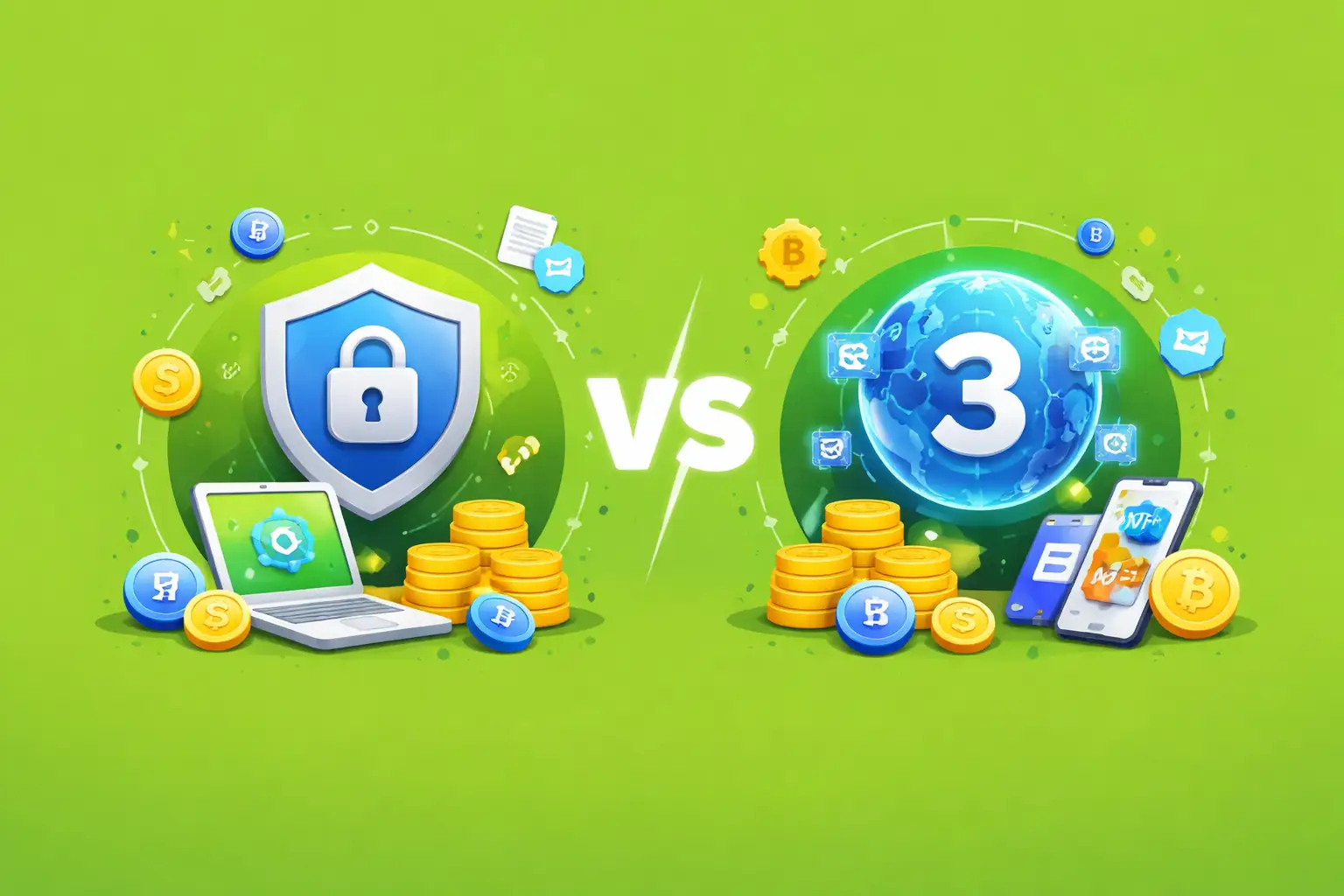Introduction to Bitcoin Private Keys
In the world of cryptocurrency, nothing is more important than your Bitcoin private key. This seemingly random string of numbers and letters is the single most critical piece of information that separates you from your wealth. Understanding how private keys work is essential for anyone who owns or plans to own Bitcoin because your entire investment depends on keeping this information secure.
Many newcomers to cryptocurrency focus on price movements and trading strategies while overlooking the fundamental security concepts that protect their investment. Your Bitcoin private key is not just a password or PIN code. It is the mathematical proof of ownership that the entire Bitcoin network recognizes. Without proper understanding and protection of your private key, you risk losing everything.
With over 8 years of experience in blockchain technology and cryptocurrency security, our team has helped countless clients protect their digital assets. We have seen both the incredible security that Bitcoin private keys provide when handled correctly and the devastating losses that occur when they are mismanaged. This guide shares our expertise in simple, easy-to-understand language.
By the end of this comprehensive guide, you will understand exactly what a Bitcoin private key is, how it works, why it matters, and most importantly, how to keep it safe. This knowledge is foundational to safely participating in the Bitcoin ecosystem, whether you hold a small amount or manage significant cryptocurrency wealth.
What Is a Bitcoin Private Key
A Bitcoin private key is a 256-bit number, which is simply a very large random number generated using cryptographic methods. When displayed in hexadecimal format, it looks like a string of 64 characters. This number is the secret that unlocks your ability to spend bitcoins associated with its corresponding public address. Your Bitcoin private key is essentially the master password to your digital wealth.
Think of your Bitcoin private key like the key to a safe deposit box. Anyone who has this key can open the box and take everything inside. The difference is that with Bitcoin, there is no bank manager who can help you if you lose the key or someone steals it. The private key is the only way to prove ownership, and the Bitcoin network does not care who holds it.
The beauty of a Bitcoin private key lies in its mathematical properties. Despite being just a number, it is virtually impossible to guess through brute force because there are more possible private keys than atoms in the observable universe. This astronomical number ensures that your key remains unique and secure as long as it was generated properly using random methods.
When you create a Bitcoin wallet, the software generates a Bitcoin private key using secure random number generation. This key is then used to derive your public key and Bitcoin address. Understanding this relationship is crucial because it forms the foundation of how Bitcoin security works and why protecting your private key is absolutely non-negotiable.
How Private Keys Work in Bitcoin
Your Bitcoin private key works through a mathematical process called elliptic curve cryptography (ECC). When you want to spend bitcoins, the private key creates a digital signature that proves you authorized the transaction. This signature is unique for each transaction and cannot be forged without possessing the actual Bitcoin private key.
The process begins when your Bitcoin private key generates a public key through one-way mathematical functions. This means the calculation can only go in one direction. You can derive a public key from a private key, but you cannot determine the private key from the public key. This asymmetric relationship is fundamental to Bitcoin security.
| Component | Description | Visibility |
|---|---|---|
| Private Key | 256-bit secret number that controls your coins | Secret |
| Public Key | Derived from private key using ECC math | Public |
| Bitcoin Address | Hashed version of public key for receiving | Public |
| Digital Signature | Created by private key to authorize transactions | Public |
When you broadcast a transaction, the network verifies your digital signature against your public key. If the math checks out, the network accepts that you own the coins and approves the transfer. Your Bitcoin private key never leaves your possession during this process, which is what makes the system so secure and trustless.
Difference Between Private Key and Public Key
Understanding the difference between your Bitcoin private key and public key is essential for safe cryptocurrency management. Think of them as two halves of a security system that work together but serve completely different purposes. Your private key is like the combination to a vault, while your public key is like the vault’s address where people can send deposits.
Your Bitcoin private key must remain absolutely secret at all times. Sharing it with anyone gives them complete control over your funds. In contrast, your public key can be shared freely because it cannot be used to steal your coins. The public key allows others to verify your signatures and send you Bitcoin, but it cannot authorize spending.
The mathematical relationship between these keys is what makes Bitcoin work. Your Bitcoin private key creates signatures that only your public key can verify. This one-way relationship means anyone can confirm that a signature came from the holder of a specific private key without ever knowing what that private key actually is.
In practical terms, your Bitcoin address (derived from your public key) is what you share when receiving payments. Your Bitcoin private key stays hidden in your wallet, only being used to sign transactions when you want to spend. This separation of functions is fundamental to cryptocurrency security and enables trustless peer-to-peer transactions.
Bitcoin Private Key Security Lifecycle
Key Generation
Generate private key using cryptographically secure random number generator.
Derive Public Key
Use elliptic curve multiplication to generate corresponding public key.
Create Bitcoin Address
Hash public key to create shorter, more usable Bitcoin address.
Secure Backup
Create secure offline backup of seed phrase or private key.
Store Securely
Use hardware wallet or cold storage for maximum protection.
Sign Transactions
Use private key to create digital signatures when spending Bitcoin.
Verify Regularly
Periodically verify backup integrity and storage security.
Inheritance Planning
Plan secure key transfer to beneficiaries for estate purposes.
Why Private Keys Are Critical for BTC Security
Your Bitcoin private key is the single point of control for your cryptocurrency holdings. Unlike traditional banking where multiple layers of protection and recovery options exist, Bitcoin puts complete responsibility in your hands. This is both incredibly empowering and potentially dangerous if you do not take proper precautions.
The critical nature of the Bitcoin private key stems from the irreversible nature of cryptocurrency transactions. Once someone has your private key and moves your coins, there is no central authority to reverse the transaction. No bank, no government, no company can help you recover stolen funds. The blockchain records the transaction permanently.
This is why the phrase “not your keys, not your coins” has become a mantra in the cryptocurrency community. According to Investopedia Insights, When you leave Bitcoin on an exchange, you are trusting them with your Bitcoin private key. History has shown that exchanges can be hacked, go bankrupt, or simply disappear with customer funds.
Understanding the critical importance of your Bitcoin private key should motivate you to take security seriously. Proper key management is not optional but essential for anyone who holds significant value in cryptocurrency. The security of your entire investment depends on how well you protect this single piece of information.
How Private Keys Control Bitcoin Ownership
In Bitcoin, ownership is defined entirely by possession of the Bitcoin private key. There are no titles, deeds, or registration documents. The network recognizes whoever can produce a valid signature as the legitimate owner of the coins. This is a fundamental departure from how traditional property rights work.
When someone sends Bitcoin to your address, the coins become locked to your Bitcoin private key. Only someone with that specific key can create the digital signature required to move those coins. The entire Bitcoin network enforces this rule through its consensus mechanism, making private key ownership equivalent to Bitcoin ownership.
This system creates true digital scarcity and ownership. You do not need permission from any authority to hold or transfer your Bitcoin. As long as you control your Bitcoin private key, you have complete sovereignty over your funds. This is what makes Bitcoin censorship-resistant and truly decentralized.
The flip side of this powerful ownership model is that there is no recourse if you lose control. If your Bitcoin private key is stolen or lost, the coins are gone. Understanding this direct relationship between key possession and ownership is crucial for anyone participating in the Bitcoin ecosystem.
Role of Private Keys in Bitcoin Transactions
Every Bitcoin transaction requires a digital signature created by the Bitcoin private key. When you want to send coins, your wallet software uses your private key to sign the transaction data. This signature proves to the network that you are the legitimate owner and have authorized this specific transfer.
The signing process is mathematically precise. Your Bitcoin private key creates a unique signature for each transaction based on the transaction details. Even a tiny change in the transaction data would produce a completely different signature, making tampering impossible without the actual private key.
| Transaction Step | Private Key Role | Security Aspect |
|---|---|---|
| Create Transaction | Not yet used, transaction data prepared | No risk at this stage |
| Sign Transaction | Private key creates digital signature | Key used but not exposed |
| Broadcast | Signature sent, key stays local | Private key never transmitted |
| Verification | Network verifies against public key | Proves ownership cryptographically |
Importantly, your Bitcoin private key never leaves your device during a normal transaction. Only the signature is broadcast to the network. This is a crucial security feature because it means you can prove ownership without revealing the secret key itself. The signature is public, but the key remains protected.
What Happens If a Private Key Is Lost
Losing your Bitcoin private key is one of the most devastating events that can happen to a cryptocurrency holder. Unlike losing your bank card or forgetting a password, there is absolutely no recovery mechanism. The coins associated with that key become permanently inaccessible, effectively removed from circulation forever.
Conservative estimates suggest that 20% of all existing Bitcoin is permanently lost due to lost private keys. This represents billions of dollars worth of cryptocurrency that will never be recovered. Famous cases include early Bitcoin miners who threw away hard drives containing thousands of coins now worth hundreds of millions.
There is no customer service to call, no recovery process to follow, and no authority that can help. The Bitcoin network does not know or care who you are. It only recognizes valid signatures from private keys. Without the Bitcoin private key, you simply cannot prove ownership or access your funds.
This harsh reality underscores the importance of proper backup procedures. Before storing any significant value in Bitcoin, you must create secure backups of your Bitcoin private key or seed phrase. Multiple backups in different secure locations provide protection against loss while maintaining security.
Industry Standards for Bitcoin Private Key Security
Standard 1: Always generate private keys using cryptographically secure random number generators from reputable sources.
Standard 2: Store significant holdings in cold storage using hardware wallets or air-gapped computers only.
Standard 3: Create multiple backups of seed phrases stored in geographically separate secure locations.
Standard 4: Never enter your private key or seed phrase on any website or share it through digital communication.
Standard 5: Test backup recovery procedures before storing significant value to ensure they work correctly.
Standard 6: Use multi-signature setups for large holdings requiring multiple keys to authorize transactions.
Risks of Sharing Your Bitcoin Private Key
Sharing your Bitcoin private key with anyone, for any reason, is equivalent to giving them complete control over your funds. There are no circumstances where sharing your private key is safe or appropriate. Legitimate services will never ask for your private key, and anyone who does is likely attempting to steal from you.
Scammers commonly impersonate customer support, claiming they need your Bitcoin private key to fix problems or verify your account. This is always a scam. Real cryptocurrency platforms never need your private key because they cannot do anything legitimate with it that you cannot do yourself.
Even sharing your key with people you trust creates risk. Relationships change, people make mistakes, and devices get compromised. Once someone else knows your Bitcoin private key, you have no way to revoke that access except by moving your funds to a new address with a new key.
The rule is simple: never share your Bitcoin private key under any circumstances whatsoever. If someone has a legitimate need to access your funds, there are secure methods like multi-signature wallets that do not require sharing keys. Any request for your private key is a red flag indicating attempted theft.
How Wallets Store and Protect Private Keys
Bitcoin wallets are essentially software or hardware designed to securely store and use your Bitcoin private key. Different types of wallets offer varying levels of security, convenience, and features. Understanding how each type protects your keys helps you choose the right solution for your needs.
Software wallets store your Bitcoin private key in encrypted form on your device. When you enter your password, the key is temporarily decrypted to sign transactions. The security of software wallets depends on your device’s security and the strength of your encryption password.
Hardware wallets are dedicated physical devices that store your Bitcoin private key in a secure chip. The key never leaves the device, and transactions are signed internally. This provides superior security because even if your computer is compromised, attackers cannot extract the private key from the hardware wallet.
Paper wallets and metal backups store the Bitcoin private key or seed phrase in physical form. While extremely secure against digital attacks, they require careful physical security and protection from fire, water, and theft. Many users combine multiple storage methods for comprehensive protection.
Private Key Storage Selection Criteria
📊 Step 1: Assess Value
- Determine total Bitcoin value you hold
- Consider security level appropriate for amount
- Balance convenience against protection needs
🔐 Step 2: Choose Storage
- Hardware wallet for significant holdings
- Software wallet for small daily amounts
- Cold storage for long-term savings
✅ Step 3: Create Backups
- Write down seed phrase on paper
- Store in multiple secure locations
- Test recovery before storing value
Best Practices to Keep Private Keys Safe
Keeping your Bitcoin private key safe requires a combination of technical measures and careful behavior. The best security practices involve multiple layers of protection so that no single failure can compromise your funds. These practices have been refined over years of experience in the cryptocurrency industry.
First and most importantly, use hardware wallets for any significant holdings. These devices keep your Bitcoin private key isolated from internet-connected devices where malware and hackers operate. Even if your computer is completely compromised, the hardware wallet protects your key from extraction.
Second, create multiple backups of your seed phrase and store them in different physical locations. This protects against fire, flood, theft, or any single disaster that could destroy a backup. Consider using metal backup plates that resist fire and water damage for additional durability.
Third, never enter your Bitcoin private key or seed phrase on any device connected to the internet unless absolutely necessary for a transaction. Be extremely vigilant about phishing attempts that try to trick you into revealing your key. When in doubt, do not enter your key anywhere.
Why Private Keys Make Bitcoin Secure and Trustless
The Bitcoin private key system is what makes Bitcoin truly revolutionary as a financial system. It eliminates the need to trust banks, governments, or any other intermediary with your wealth. As long as you control your private key, no one can freeze, seize, or block your access to your funds.
The cryptographic strength of Bitcoin private keys provides security that no traditional financial system can match. The mathematical impossibility of guessing or deriving a private key means that your funds are protected by the laws of mathematics rather than by promises from institutions.
This trustless nature is profound. You do not need to trust that a bank will honor your withdrawal request or that a government will not devalue your savings. Your Bitcoin private key gives you sovereignty over your wealth in a way that has never before been possible in human history.
Understanding your Bitcoin private key transforms you from a customer dependent on financial institutions into a truly self-sovereign individual. This power comes with responsibility, but for those who learn to manage it properly, Bitcoin offers unprecedented financial freedom and security.
Frequently Asked Questions
A Bitcoin private key is a secret 256-bit number that gives you complete control over your bitcoins. Think of it like the password to your bank account, but far more powerful. Your Bitcoin private key proves ownership of your coins and allows you to sign transactions. Without it, you cannot access or spend your BTC. It must be kept absolutely secret because anyone with your Bitcoin private key can take your funds.
Your Bitcoin private key generates your public key through one-way mathematical calculations. The public key can be shared freely and is used to create your Bitcoin address where others send you coins. The critical difference is that the Bitcoin private key must remain secret while the public key is designed to be visible. You cannot derive a private key from a public key, which is what makes the system secure.
If you lose your Bitcoin private key, your coins are gone forever with no recovery option. There is no customer support to call, no password reset, and no way to regenerate it. Billions of dollars worth of Bitcoin have been permanently lost because owners lost their private keys. This is why backing up your Bitcoin private key securely is absolutely essential before storing any significant value.
Your Bitcoin private key should be stored in cold storage, meaning offline and disconnected from the internet. Hardware wallets like Ledger or Trezor are excellent options. You can also write it on paper or metal and store it in a secure location like a safe deposit box. Never store your Bitcoin private key in plain text on your computer, phone, or cloud storage services.
Guessing a Bitcoin private key is mathematically impossible. The number of possible private keys is 2 to the power of 256, which is larger than the number of atoms in the observable universe. Even with all the computers on Earth working together for billions of years, the probability of guessing your specific Bitcoin private key is essentially zero. The cryptographic security is unbreakable with current technology.
A seed phrase is a human-readable backup of your Bitcoin private key, typically consisting of 12 or 24 words. These words can regenerate all your private keys and recover your entire wallet. The seed phrase and Bitcoin private key are mathematically connected, so protecting your seed phrase is equally critical. Anyone with your seed phrase can recreate your private keys and steal your funds.
You cannot change an existing Bitcoin private key because it is permanently linked to its corresponding public key and address. However, you can create a new wallet with a new Bitcoin private key and transfer your coins to the new address. If you suspect your current key may be compromised, moving funds to a new address with a fresh private key is the recommended security practice.
Yes, when you store Bitcoin on an exchange, they control the Bitcoin private key, not you. This means you are trusting the exchange with your funds. The phrase “not your keys, not your coins” highlights this risk. Exchange hacks have resulted in billions of dollars lost. For maximum security, you should withdraw your Bitcoin to a personal wallet where you control the private key yourself.
Reviewed & Edited By

Aman Vaths
Founder of Nadcab Labs
Aman Vaths is the Founder & CTO of Nadcab Labs, a global digital engineering company delivering enterprise-grade solutions across AI, Web3, Blockchain, Big Data, Cloud, Cybersecurity, and Modern Application Development. With deep technical leadership and product innovation experience, Aman has positioned Nadcab Labs as one of the most advanced engineering companies driving the next era of intelligent, secure, and scalable software systems. Under his leadership, Nadcab Labs has built 2,000+ global projects across sectors including fintech, banking, healthcare, real estate, logistics, gaming, manufacturing, and next-generation DePIN networks. Aman’s strength lies in architecting high-performance systems, end-to-end platform engineering, and designing enterprise solutions that operate at global scale.







